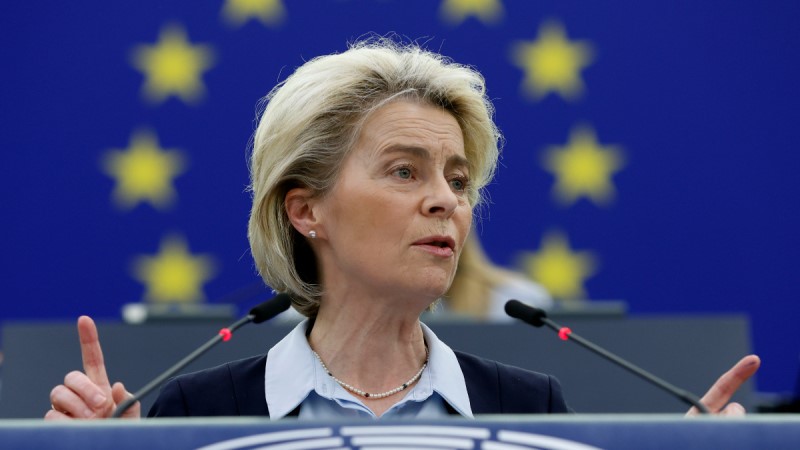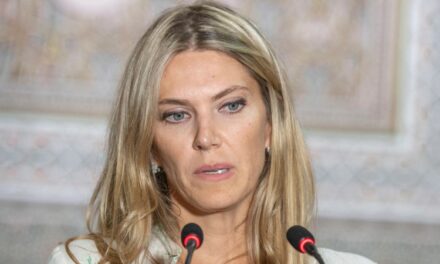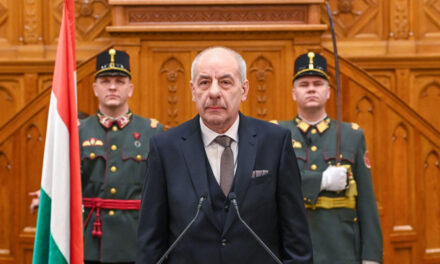A good part of the objections that the European Commission formulated in its letter last week are no longer relevant. The government has been negotiating with the Brussels board on several issues for months. In the past week, the stakeholders made important comments regarding EU criticism, for example, according to the Court, one of the suggestions has nothing to do with the rule of law, but also with reality.
Last week, the European Commission criticized a number of already closed cases, as well as topics under national competence, in its letter initiating the EU rule of law procedure.
Cases that have already been closed include, for example, operational programs - KEHOP, KÖFOP - for which the relevant audits have already been completed in 2017 and 2018. Regarding monitoring and the transparency of EU-sourced public procurement, our country has responded in detail to the suggestions made by the European Anti-Fraud Office (OLAF) in its previous reports on several occasions. This also includes the fact that Hungary already sent the draft cooperation agreement between the Public Procurement Supervision Department of the Prime Minister's Office and the Economic Competition Authority to the European Commission in 2017 as an attachment to an audit report, which was accepted by the Brussels body and the audit was closed.
Questions on which an agreement has already been reached between the government and the EC also appear in the letter. Hungary undertook to create a downloadable and easily searchable database of public procurement procedures, and the committee did not object to the measure. In the spirit of the fight against corruption, our country undertook to create a new IT system that supports the administrative work of organizational units involved in prosecution investigations and the management of confidential documents - the European Court of Justice accepted this as well. As far as competences are concerned, although the financing of the common agricultural policy is an EU competence, the regulation of the property policy of the member states – land ownership and land lease system – is exclusively a national competence. Likewise, the establishment of the institutional framework for the fight against corruption – the prosecution system.
The content and tone of the European Commission's letter matches the body's previous materials. Most of the criticisms have already appeared before, in the rule of law reports of the last two years – otherwise prepared without proper legal authority. In many cases, the committee refers to previous documents prepared by itself or reports financed by it, which were prepared by political NGOs belonging to the open society network of George Soros For example, in addition to the committee, the Corruption Research Center Budapest (CRCB), supported by Soros's Open Society Foundation (OSF), whose collaborators and authors included Klára Ungár, a former SZDSZ politician, and Márton Túry , the he is also the former chief of staff of the opposition Momentum.
The Court also responded to the letter, which, according to its statement, was surprised to learn that the committee objected to the practice of assigning judges to Hungarian courts. "We are convinced that the suggestion has nothing to do with the issue of the rule of law, because it has nothing to do with reality," they wrote. "There is no doubt that the secondment is an extraordinary form of service performance, which can primarily take place if, due to an unforeseen or otherwise unsolvable temporary situation, one of the courts, including the Manor, needs immediate help," they explained in the announcement . "The appointment to a higher court, i.e. to the Curia, in other cases is also a means of the judge's professional development and gaining experience, i.e. it serves his personal growth. Both cases are temporary measures with a foreseeable end and lasting for a definite period of time, and in both cases the approval of the judge and the consent of the presidents of the two courts involved are required for the assignment," they pointed out. "In the past two years, the country was affected by a serious coronavirus epidemic, which had an impact not only on court cases, but also on the ability to apply for judicial positions. As soon as the epidemic situation - even if only temporarily - made it possible, the Court, as can be seen from the publicly available calls for applications for judicial positions, continuously took measures to fill the judicial positions and, at the same time, to terminate the assignments," the announcement states .
Gergely Gulyás, the minister in charge of the Prime Minister's Office, said in last week's Government Information that the government has studied the European Commission's letter, and according to this, there is no obstacle to signing the agreement on the EU recovery fund.
He reminded that there are areas in which the government cannot give in, and the result of the election obliges it to do so. In addition to the child protection law, the minister emphasized that Hungary must stay out of the war, does not supply weapons or send soldiers, and does not allow the Hungarian people to pay the price of the war. According to Gulyás, there is no point in the letter where there is no consensus or a solution that is acceptable to both the government and the committee.
"If the European Union's corruption accusations were true, there would not be continuous economic growth in Hungary for years," pointed out Balázs Hidvéghi , a member of the European Parliament from Fidesz, who took part in La faute à l'Europe? on the French talk show. As he said, Brussels uses such important issues and ideas as corruption or the rule of law for political blackmail against a conservative, Christian Democratic government.
The politician drew attention to the fact that in the cases investigated by the European Anti-Fraud Office (OLAF), charges are filed in 37 percent of the cases on average, in France and Hungary it is 67 percent, while in Austria this ratio is 25 percent. The European Union does not have a solid benchmark when talking about corruption, he noted. According to Hidvéghi, it is about Brussels being unable to accept the sovereign decision of the Hungarian people, even though it is clear, since Fidesz won the elections for the fourth time in a row this year.
Source: Magyar Hírlap
(Header photo: Ursula von der Leyen, who makes false accusations. Photo: AFP/Dursun Aydemir)












